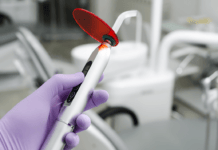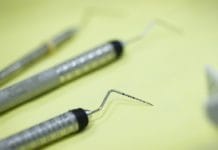For many dental hygienists, downtime in your clinical schedule is a bittersweet concept—too much of it and you risk a cut in hours, too little of it and you balance precariously on the edge of exhaustion. Between patients canceling at the last minute, the inevitable “forgotten” dental appointment, and the natural ebb and flow of slow and busy seasons, downtime is a factor in every dental hygiene schedule. Typically, most of us won’t complain when there is a break in our day. This cherished time is valuable to catch up on things, have a quick stretch-break, and perhaps sharpen an instrument or two. An empty appointment is especially coveted by those hygienists required to run a tight schedule and complete patients in under 60 minutes.
But what happens when you find yourself having an open appointment every day? Or, dare I say it, you have two in a single day? Or even three? Let’s face it, we’ve all been there, and we’ve all run out of things to do to make us appear busy. The shelves are restocked and reorganized, instruments are as sharp as can be, and you simply cannot make another trip to the break room for yet another cookie. (It is, after all, only 10:30 in the morning.) So, what do you do? Are you expected to clock out? Are you obligated to work on patient recall? Or, are you forced to live into your “cleaning lady” nickname and actually clean the toilets?
This topic was recently discussed within a popular online dental community. When administrative staff were asked what their dental hygienists were expected to do during downtime, answers ranged from anesthetizing patients in the dentist’s schedule, to clocking out, and yes, to scrubbing the toilets. While each of these are great to keep a warm body busy, they are not the best use of time for any licensed professional and can actually have a negative effect on the hygienist, the team, and the bottom line.
Let’s take a minute to step out of dentistry and re-frame this concept. Think about the last time you visited a medical facility as a patient: What if you saw your nurse practitioner on their hands and knees scrubbing the bathroom? What if you witnessed your family physician unpacking supplies and restocking shelves? What if you observed your pharmacist cleaning the floors, changing a lightbulb, or dusting the blinds? What would you think? How confused would you be? Would it reflect positively on the practice, or would you wonder why this licensed professional has the time to do these menial tasks?
It is important to remember that downtime expectations come not only from an employer but other staff members like office managers or dental assistants as well—however, these expectations also are rooted deep within ourselves. While a dental hygienist who is willing to scrub a toilet definitely earns points for being a team player, she loses points for being underutilized, for not working at the top of her professional license, and for undervaluing her impact on patients and the success of the dental practice.
Curious as to what else you can do during downtime besides scrubbing the toilets? Here are a few projects every dental hygienist can initiate that will not only take advantage of your professional expertise but will also demonstrate to your employer that you are resourceful and a valuable asset to the team:
- Review the hygiene department for noticeable strengths and weaknesses
- Audit charts for proper documentation, consents, and outstanding treatment
- Follow-up with cases which have been referred to specialists
- Consult with the medical care providers of those patients with complicated systemic issues and/or numerous medications
- Research new procedures and tools to increase practice efficiency and profitability
- Stay current on the latest research and provide brief updates to the team during staff meetings (recent trending topics include: myofunctional therapy, sleeping disorders, e-cigarettes/vaping, etc.)
- Create or evaluate a caries management protocol and educate the rest of the team
So, the next time you find yourself with a break in the schedule and nothing to do, resist the temptation to purge charts, dust the blinds, or scrub the toilet. Instead, take a step back and think about the creative ways you can employ your professional skills, not only to help advance the hygiene department, but the practice as a whole.











